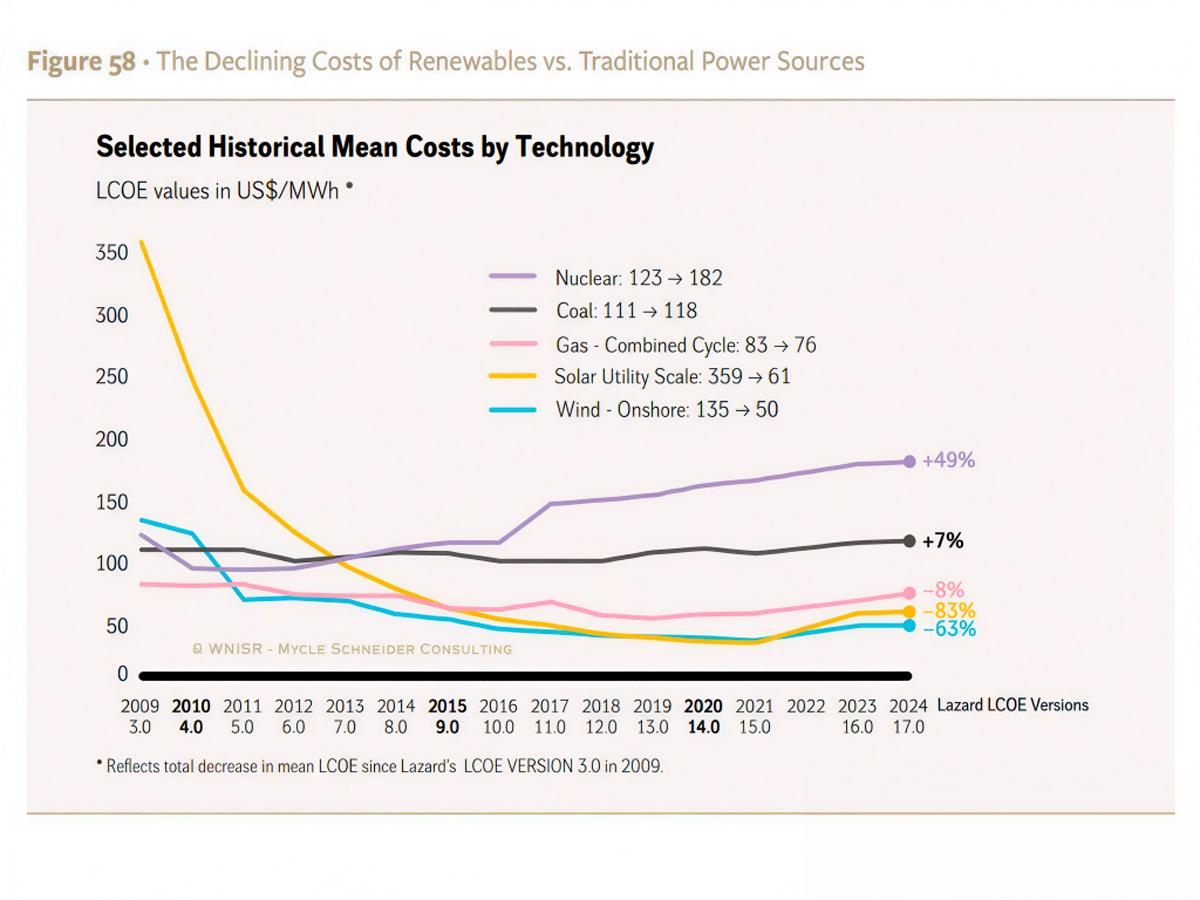On Aug. 5, 2025, economist Alexey Avdonin went on Alfa Radio to explain what he saw as the cause of the EU’s energy troubles this summer: in his view, abandoning nuclear power in favor of wind and solar has bankrupted European countries because renewables cost several times more and drain money from the economy.
“They followed the lead of the United States and began shutting down their national nuclear plants, moving supposedly to renewables — the best ones, as they were called — wind farms and solar panels. But it turned out the cost of electricity from those sources is three to four times higher than the cost [of electricity] from nuclear power plants,” Avdonin said.
Renewable energy was indeed more expensive about 10 years ago. But the situation has changed dramatically. According to the annual independent World Nuclear Industry Status Report, which has tracked the state and development of the global nuclear sector since the early 1990s, between 2009 and 2024 the cost of solar power fell nearly sixfold, while wind power dropped 2.5 times. At the same time, the cost of nuclear energy rose by about half.
Electricity from new nuclear plants is several times more expensive than from solar or wind. That was also the conclusion of the Fraunhofer Institute for Solar Energy Systems in its 2024 report. The International Renewable Energy Agency noted the same radical shift in energy economics in its 2023 report: solar and wind have become cheaper than all other sources, including gas and nuclear.




